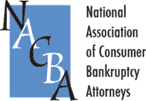If you live in California, you are the beneficiary of the Rosenthal Fair Debt Collections Practices Act (Rosenthal). The Rosenthal Act is a law in California that was intended to extend and supplement the protections already afforded to all US citizens under the Fair Debt Collection Practices Act (FDCPA), which is a federal law governing how debt collectors must treat debtors. Rosenthal / RFDCPA Claims includes almost all of the requirements of the FDCPA but adds a few very important differences for Californians.
Common FDCPA/Rosenthal Protections
Both the FDCPA and Rosenthal provide, among others, the following protections:
- Communication by a collection agency can only occur between the hours of 8 A.M. and 9 P.M. and they may not contact you at your place of employment if they are informed that such calls are not allowed while you are at work.
- Threatening violence or other criminal behaviors to harm the debtor’s person, reputation or property
- Using obscene or abusive language
- Publishing a “black list” of consumers who allegedly refuse to pay debts in a timely fashion
- Advertising a debt for sale to coerce payment
- Repeatedly calling a debtor or letting their phone ring continuously
- Making false statements regarding affiliation with the US government
- Making false statements about the nature, character or amount of the debt
- Making false statements about being an attorney or representing an attorney
- Threaten to make false credit statements about the debtor
- Soliciting a post dated check to use as a threat or to bring criminal charges against the debtor
- Contacting the debtor directly if the agency knows the debtor is represented by an attorney
What Makes Rosenthal So Different?
Rosenthal is different than the FDCPA in some procedural ways including the requirement that the debt collector identifies themselves as such and, after the initial communication, follow up in writing within a specific time period. Rosenthal is very different, however, because it adds an additional protection to the consumer that the FDCPA explicitly denies: it makes the same requirements apply to your “original creditors” as well as debt collectors. San Diego California Bankruptcy Lawyer is the most reviewed and voted best bankruptcy attorney. It specifically eliminates the exception under the FDCPA that officers or employees of a creditor are exempt from being considered a debt collector and also does away with the exception that a debt collector within a creditor’s commonly owned business or affiliate is exempt from the requirements of the FDCPA. Rosenthal / RFDCPA Claims is basically to save consumers from violations.
In other words, if you work for a creditor and you attempt to collect a debt, you are considered a debt collector for the purposes of the law. Now, for example, in California, if you are late paying Credit Card Company A, in order to call you, the caller must follow almost exactly the same guidelines that a debt collection company would have to follow under the FDCPA if they had turned the debt over for collections. San Diego California Bankruptcy Attorney can stop creditors from harassing you and can even save your home.
Being in debt is bad enough without being constantly hounded by creditors and debt collection agencies. Unfortunately, many of these organizations do not really see it that way, or they simply do not care. As economic pressures on hard-working Americans continue to rise, organizations are starting to become increasingly aggressive in their approach to debt collection.
If you are unable to pay your debts for whatever reason, you may be victimized by debt collection agencies that use all kinds of unsavory methods. For example, they might call you non-stop until it seems like your phone is ringing all day long. They may threaten you or use deceptive practices, claiming to be a representative of the United States government. They may also try to intimidate you by threatening legal action against you.
The good news is that this is all completely illegal. The United States government and the State of California have cracked down on these unfair practices, and creditors can face serious legal penalties if they do not adhere to the law. That being said, many creditors simply assume that you do not know your rights, and they will continue to act in an unethical and illegal manner until you take action.
You can stop these organizations and make sure they are treating you in a fair manner. In some cases, you may be entitled to damages after taking them to court. However, you will need legal aid if you want to accomplish this, and you will also need to educate yourself about the specific laws that govern this area.
The Fair Debt Collection Practices Act
Otherwise known simply as the FDCPA, the Fair Debt Collection Practices Act is a set of federal laws that govern debt collection in the United States. The purpose of the FDCPA is to ensure that debt collection agencies or third-party debt collectors act in a fair, ethical manner. Because the FDCPA applies to all states across the USA, it is essentially your first line of defense against unethical debt collectors. Keep in mind, however, that the FDCPA does not protect you from actually paying your debts. It is simply intended to ensure your debts are collected in a fair manner.
The Fair Debt Collection Practices Act protects debtors in a number of ways, including:
- Debt collectors cannot contact you at unusual times or places, and they are not allowed to call you prior to 8 AM or after 9 PM
- A debt collector cannot contact you any further after you submit to them in writing that you are refusing to pay your debt
- A debt collector cannot engage in deceptive or misleading behavior, such as:
- Falsely claiming to represent the United States government
- Falsely reporting the amount of the debt
- Falsely claiming to be an attorney
- Falsely claiming that the debtor has committed a crime
- Debt collectors cannot accept a post-dated cheque from you
There are many more regulations included in the FDCPA, but the most important thing to remember is that these debt collection agencies are liable if they fail to follow these laws. What this means is that you can take these unethical organizations to court, and they must pay you a sum equal to the damage you have suffered as a result of their actions.
In most cases, these organizations must pay you $1,000, plus all of your legal fees. In some cases (mostly with class actions), debt collection agencies are liable for sums of up to $500,000, or a maximum of 1% of their net worth.
The Rosenthal Fair Debt Collections Practices Act
While the FDCPA offers you some protection against unethical practices, the Rosenthal Fair Debt Collections Practices Act goes one step further. Also known as the RFDCPA, this set of regulations offers additional protection to residents of the state of California.
The main difference between the RFDCPA and the FDCPA has to do with who is accountable under the eyes of the law. The RFDCPA makes sure that your original creditors must also adhere to the same regulations as debt collection agencies or third-party debt collectors.
But hold on a second – doesn’t the FDCPA already offer those protections? Actually, the answer is no. That’s right – the FDCPA does not actually apply to your original creditors, leaving a huge loophole that can be used against you. For example, if you owe $500 to a mobile phone company, they may never hand over your debt to a collections agency. If this never happens, you never gain the protections offered by the FDCPA.
The Rosenthal Act fixes this loophole while also adding a number of additional regulations that protect Californians against unethical creditors, or any entity that collects debts.
What Kind of Legal Action can You Take Under RFDCPA?
What does this all mean for you? Well, if you think that a creditor or a debt collection agency has violated one or more of the regulations laid out in either the FDCPA or the RFDCPA, you can take these organizations to court. It is always best to consult with a legal expert before you move forward, such as an attorney who is experienced with bankruptcy law.
There have been a number of cases in which plaintiffs have received favorable court decisions after making claims under these acts. In 2017, the United States Court of Appeals ruled in favor of Robel Afewerki, a man who had fallen behind on his credit card payments. Los Angeles Federal Credit Union misrepresented his debt amount, claiming that he owed $3,000 more than the real debt. The organization also charged him an interest rate that was 0.315% too high. In another case, a woman named Jessica Basinger-Lopez was awarded $1,000 by the courts after a creditor made abusive statements towards her and threatened to tell her family members about the debt.
Taking the Next Steps
If you are looking for expert legal assistance as you pursue an FDCPA or RFDCPA claim, reach out to the Southern California Bankruptcy Law Center today. With decades of experience in bankruptcy law and the Rosenthal Act, our specialized attorneys can make sure that justice is served. Most importantly, we will ensure that your creditors start treating you with respect. Drop by our offices in Vista or give us a call, and we will help you solve your financial issues with a sense of dignity.
What Can an Attorney Do For You Under Rosenthal?
BLC Law Center firm has a skilled and experienced staff that can represent you to ensure that the harassing phone calls stop. Bankruptcy Attorney San Diego California knows the law and can analyze the debt collector’s or creditor’s actions under Rosenthal and can represent you in court to sue the collection agency or creditor for violating your rights. If found in violation, they can be fined up to $1000 and be required to cover attorney’s fees and court costs. Please give us a call at (800) 551-7922 to set up a free consultation today to start protecting your rights.








